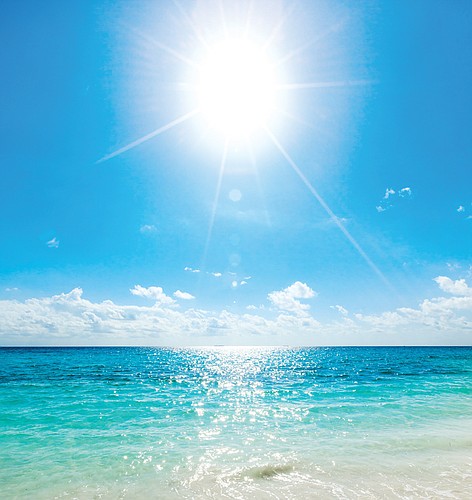- April 19, 2024
-
-
Loading

Loading

Summertime is here, and with that comes the power of the blazing sun and the unpredictability of weather on the Suncoast.
The activities that make for a good summer — swimming in the gulf water, sunning by the pool or having a barbecue — can be ruined sometimes by the glare of the sun, and the sunburn that comes along with it.
While to some the occasional angry red skin from staying outside too long may just be another aspect of the season, Dr. Cathy Milam with Milam Bogart Dermatology says people should be careful.
“In no way do I want (patients) to change their lifestyle (out of) fear of the sun,” she said. “I just want them to be careful.”
Being careful means being deliberate about how you protect yourself. That means sunscreen. If you’re going outside, you need it. Even if you’re driving in your car, or just walking in and out of buildings, Milam said that’s enough exposure to hurt you.
Sunscreen, properly applied, is imperative.
“It takes a lot more actual product than they think,” she said.
Dermatologists recommend applying 1 ounce of sunscreen — the amount to fill a shot glass. However, the sunscreen itself isn’t always enough.
“The thing we worry about in dermatology is the world is using more sunscreen but getting a false sense of security,” she said. “Just putting on cream doesn’t mean you’re home free.”
You should wear clothing that protects you, including hats and sunglasses, seek shade and avoid the midday sun. Even when it’s cloudy, you need to take precautions, she said. Those damaging ultraviolet rays can still break through.
But clouds also can mean summer storms, and with those can come dangerous lightning. Between Jan. 1, 2007, and June 20, 2017, 52 people were killed by lightning in the Sunshine State, the most of any state in the nation.
As part of National Lightning Safety Awareness week June 24-30, the National Oceanic and Atmospheric Administration offers its Lightning Safety Guidelines, which is available online at weather.gov/lightning.
Among its suggestions, NOAA said to get inside as soon as you hear thunder, because that means you are within striking distance of lightning.
“Stay away from isolated tall trees, towers or utility poles,” NOAA said. “If you are with a group of people, spread out. While this actually increases the chance that someone might get struck, it tends to prevent multiple casualties.”